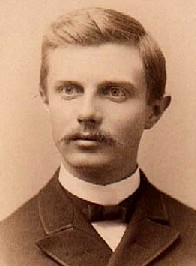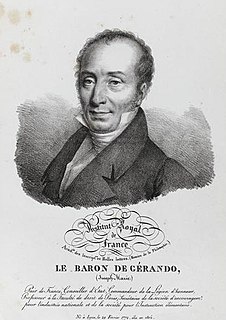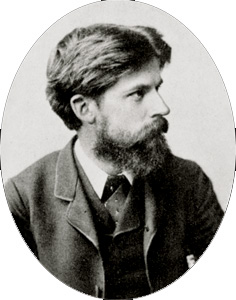A Quote by Ralph Waldo Emerson
There are many faculties in man, each of which takes its turn of activity, and that faculty which is paramount in any period and exerts itself through the strongest nation, determines the civility of that age: and each age thinks its own the perfection of reason.
Related Quotes
The poet, described in ideal perfection, brings the whole soul of man into activity, with the subordination of its faculties to each other according to their relative worth and dignity. He diffuses a tone and spirit of unity, that blends, and (as it were) fuses , each into each, by that synthetic and magical power, to which I would exclusively appropriate the name of Imagination.
Government ought to be as much open to improvement as anything which appertains to man, instead of which it has been monopolized from age to age, by the most ignorant and vicious of the human race. Need we any other proof of their wretched management, than the excess of debts and taxes with which every nation groans, and the quarrels into which they have precipitated the world?"
Now, as there is an infinity of possible universes in the Ideas of God, and as only one of them can exist, there must be a sufficient reason for God's choice, which determines him toward one rather than another. And this reason can be found only in the fitness, or the degrees of perfection, that these worlds contain, since each possible thing has the right to claim existence in proportion to the perfection it involves.
Our civility, England determines the style of, inasmuch as England is the strongest of the family of existing nations, and as we are the expansion of that people. It is that of a trading nation; it is a shopkeeping civility. The English lord is a retired shopkeeper, and has the prejudices and timidities of that profession.
Every old man complains of the growing depravity of the world, of the petulance and insolence of the rising generation. He recounts the decency and regularity of former times, and celebrates the discipline and sobriety of the age in which his youth was passed; a happy age which is now no more to be expected, since confusion has broken in upon the world, and thrown down all the boundaries of civility and reverence.
What is the purpose for which Masonry exists? Its ultimate purpose is the perfection of humanity. Mankind it self is still in a period of youth. We are only now beginning to acquire a consciousness of the social aim of civilization, which is man's perfection. Such perfection can never end with physical perfection, which is only the means to the end or spiritual perfection.
Philosophers have very justly remarked that the only solid instruction is that which the pupil brings from his own depths; that the true instruction is not that which transmits notions wholly formed, but that which renders him capable of forming for himself good opinions. That which they have said in regard to the intellectual faculties applies equally to the moral faculties. There is for the soul a spontaneous culture, on which depends all the real progress in perfection.
To reason logically is so to link one's propositions that each should contain the reason for the one succeeding it, and should itself be demonstrated by the one preceding it. Or at any rate, whatever the order adopted in the construction of one's own exposition, it is to demonstrate judgments by each other.
There was an age in which it was clear to me that my parents weren't perfect, but then there was an age at which I had empathy for that. And that was through therapy, probably. You have to rebuild and you also have to grow in your understanding of whatever it is your parents are facing, and that takes a major, profound shift of perspective from being a child.









































